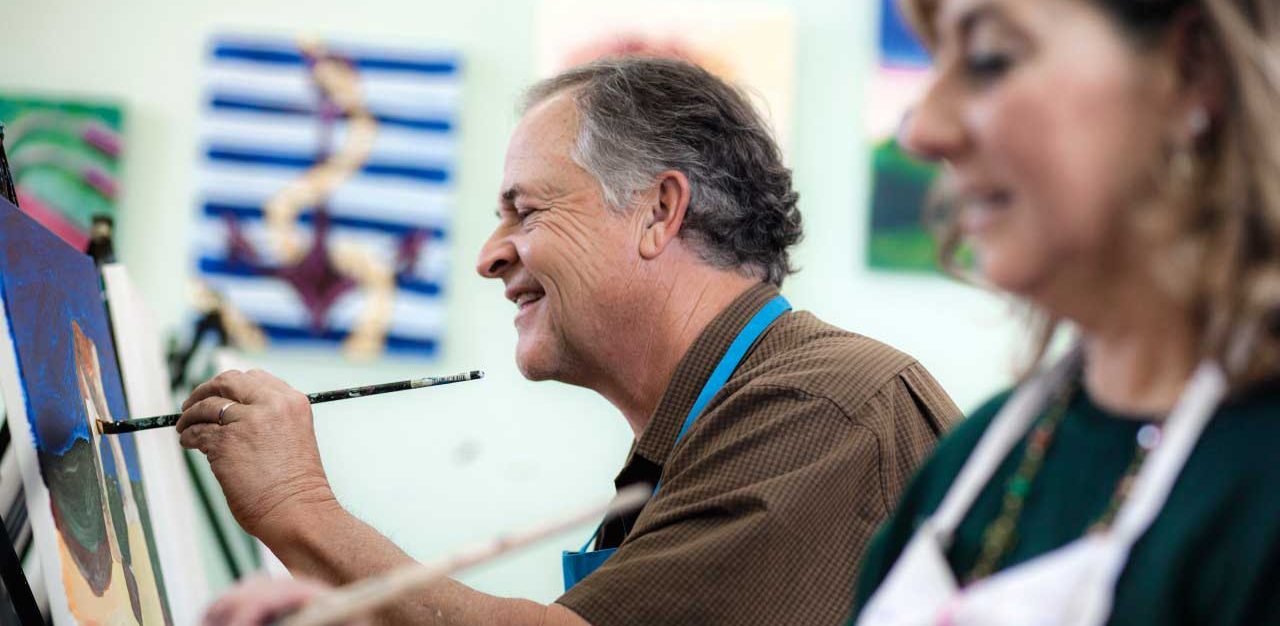More People Would Rather Stay 50 Than Be 20 Again

One national survey finds that the comfort level with middle age has increased.
Julie Volkman of Hammond, Ind., is a prime example of aging with purpose and peace of mind.
After some turbulent teen years in a home with an alcoholic father, she was married at 19 and started to have kids. All the while, she says she was still a kid herself.
“I was so unformed. I was just living and breathing. I didn’t understand what my gifts were,” she says. “I didn’t understand I had any. There was nothing special about me. It took until my 40s just to realize I was good at certain things.” Then came a divorce.
“Why would I want to go back? I don’t want to repeat that journey. I want to know what’s next,” she says.
Approaching age 50, she walked into a community theater and won the lead role in a play. She went on to chair an arts festival, worked with special needs kids, recorded a jazz vocal CD, sang in jazz clubs, and recently earned her master’s degree in multidisciplinary fine arts at age 61.
"Most young adults at age 20 are still rounding out the goal of adolescence — to resolve the separation from mom and dad,” says Fran Walfish, a Beverly Hills psychotherapist and author of “The Self Aware Parent.”
“Adolescents must resolve their separation and come out the other side as young adults. Many kids don't finalize that resolution until they are well into their 20s. People long for structure, boundaries, and limits.” Volkman simply says with a laugh, “I was stupid.”
Like many people aged 50 and up, you may look back and wish you had the wisdom, emotional maturity, and life experience at age 20 that you have now. At the same time, you wouldn’t mind a young body, wrinkle-free skin, and that feeling of immortality.
Maybe you can have it all. Walfish points out that this is a different era. The science of health and aging has come a long way, and you now know that keeping yourself vital and strong is possible through exercise and a healthy lifestyle. You don’t have to just grow old and broken-down.
Today, “most people would not trade age 50 to go back to age 20. I know I wouldn't,” Walfish says. Part of the reason is that more than ever, it’s just a number rather than an obligatory measure of physical and mental decline.
In a survey by InsideTracker, an aging analytics company, three times as many people said they would rather stay age 50. Only 17 percent considered people in their 60s to be old and nearly three quarters believe they will live into their 80s.
More than 80 percent believe they can slow down the effects of aging. Diet is their biggest weapon, followed by exercise.
You may be among those who also said they joined a gym, use anti-aging creams, and gave up smoking and alcohol. One-fifth said they also regularly practice cognitive mental exercises to keep their minds sharp.
But the survey also found that while middle-aged people claim to look and feel younger than their age, “scientific study after study” finds that you are more likely to be older than your chronological age, says Gil Blander, PhD, chief science officer for InsideTracker.
“That being said, our (survey) shows people are taking active roles to combat the impacts of aging and are embracing the prospect of their senior years,” he adds.
In a Harris poll, participants decided 50 was the perfect age. A decade earlier, it was 41.
“It's an age many fear,” the pollster said, “but it's also the average age Americans would like to live at if they could skip time and live forever in good health at a particular age.”
Again, good physical and mental health are the keys, and ways to maintain them are plentiful. But you have to walk the talk. Some people are even doing it while they have work-related meetings.
Volkman believes her path has just started.
Updated:
April 07, 2020
Reviewed By:
Janet O’Dell, RN